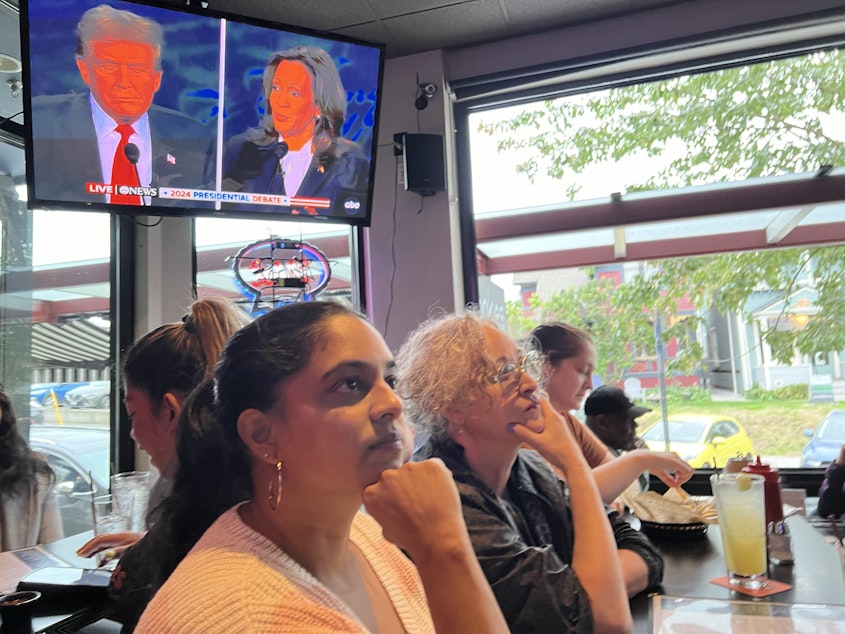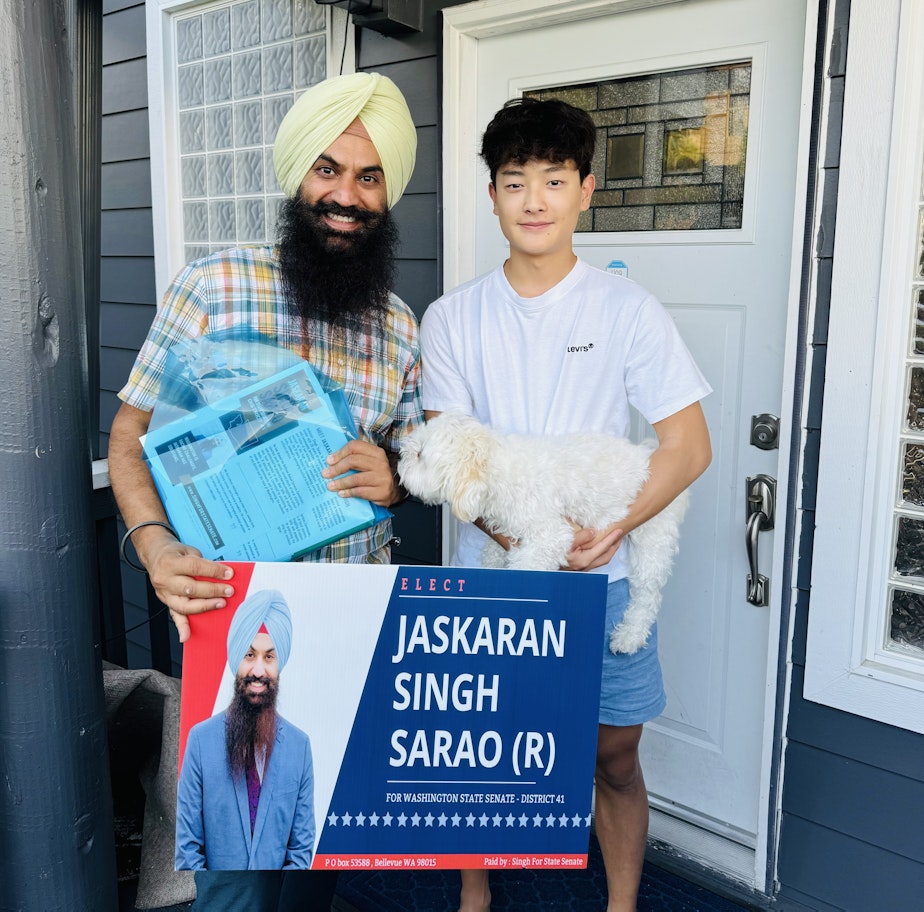South Asians in Washington state take in historic presidential debate with hope, anxiety

As families in a neighborhood near Mercerdale Park on Mercer Island prepared to watch the presidential debate Tuesday, Jaskaran Singh Sarao appeared at their doors, knocking and leaving campaign paraphernalia.
“I came to this country 19 years ago on H-1B,” a foreign work visa, Sarao told Kellee Abell, whose two daughters made faces against the glass from inside her home while dogs barked behind them.
“I became a citizen last year,” he said.
Sarao will be casting his first vote in this general election, other than his primary vote for himself last month in his bid for the state Legislature.
South Asians have become increasingly influential in national politics in recent years, especially in Washington state. Congresswoman Pramila Jayapal (D-Seattle) was the first Indian-American woman to serve in the U.S. House of Representatives, and Democratic Party Chair Shasti Conrad is the first Indian-American woman to serve as a state party chair in the U.S.
Sponsored
RELATED: Off the Charts: Kamala's 'brat summer' brought in fresh donors in Washington state
As Kamala Harris, the first presidential nominee of South Asian descent, took the debate stage across from Donald Trump this week, some watched closely — others, like Sarao, who instead headed to a Bellevue City Council meeting, are more focused on local politics.

More than half of Indian-American voters identify as Democrats. Sarao is running as a Republican in the 41st state Senate district, where almost 70% of voters chose the Democratic incumbent in 2020.
RELATED: Why South Asians are the most politically liberal of all Asian Americans
Sponsored
Across Lake Washington in Columbia City, Sudha Nandagopal was nervous for Harris to take the debate stage that evening. She’s a Democrat and a climate justice advocate who helped Jayapal get elected to Congress.
“I'm always nervous for any woman of color who's doing something for the first time, because the script has not been written and the playbook does not exist,” Nandagopal said. “There are countless things that she is being judged on that no one will ever judge another person running for office on.”
Nandagopal popped into The Royal Room, where a jazz band was playing before the debate started, but there weren’t any tables. Lottie’s Lounge down the block was also full.
Nandagopal finally found a stool at Rookie’s sports bar, missing opening statements. She texted her family members about the debate while drinking a margarita.
“My sisters are not enjoying listening to our former president,” Nandagopal said, chuckling.
Sponsored
RELATED: Swept into DC the same night as Kamala Harris and Donald Trump, Pramila Jayapal looks to the future
When Trump said there are “millions of people pouring into our country,” taking jobs from American-born workers, Nandagopal shook her head.
“The dog whistle that he is making here should make all South Asians so scared, because – H-1B visas,” she said. “He’s not only talking about South Asians obviously, but we’re implicated in that.”
Washington state is a top destination for H-1B workers and Amazon is the number two employer of people who have H-1B visas in the country.
Sarao, the candidate for state Senate, owns real estate in King County. He describes himself as a “small landlord, with a mortgage payment to manage.” This March he organized a protest outside the home of one of his tenants who he says hasn't paid rent since 2022. The protests, and Sarao's confrontation with the tenant, garnered international media attention.
Sponsored
Sarao said he came to this country for safety and equality, but Democratic policies are threatening that.

“Every naturalized immigrant, just like me, who calls this beautiful country his home, is fed up with what’s happening on the streets,” he said, huffing a bit as he walked up a hill.
Sarao wouldn’t say who he’d vote for for president.




